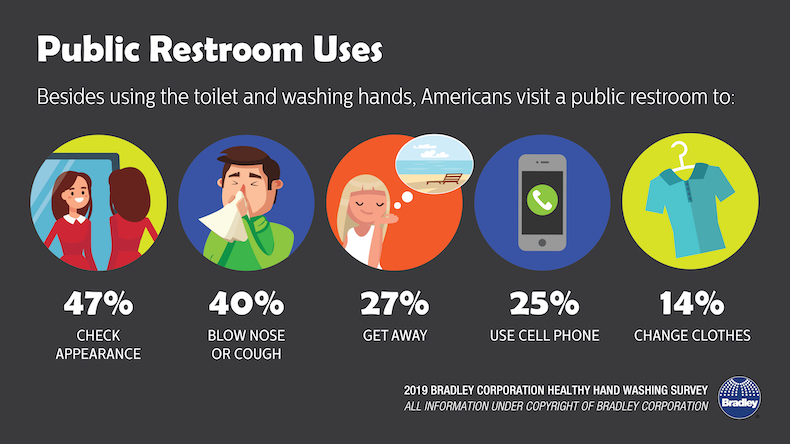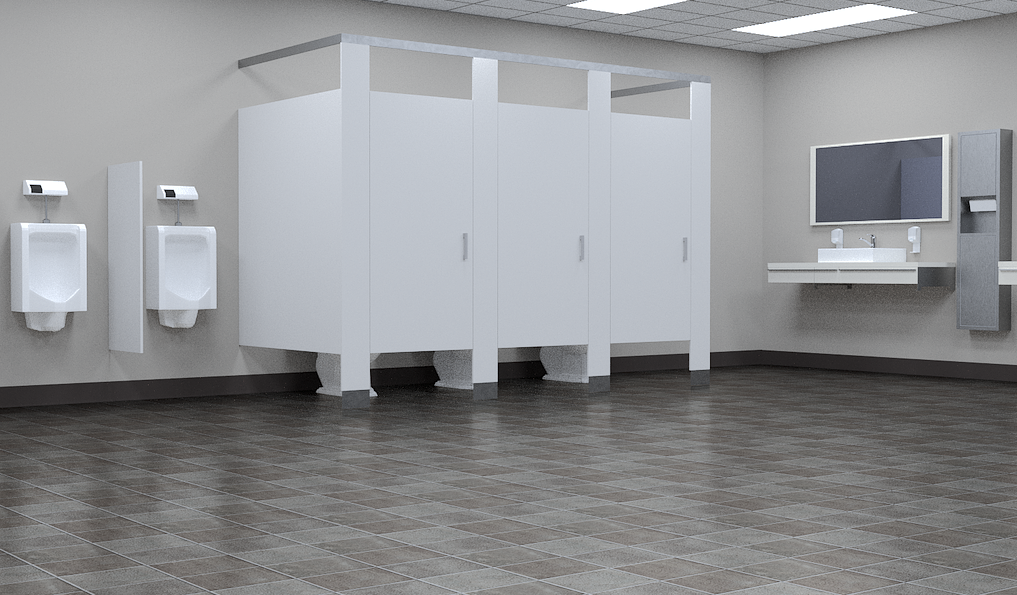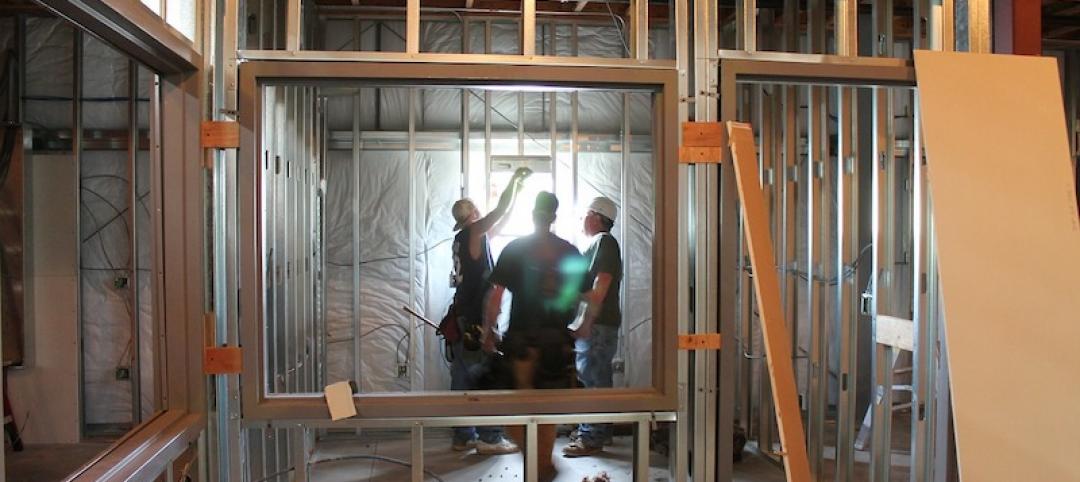About 60% of Americans use a public restroom one to five times a week, according to the latest annual hand washing survey conducted by Bradley Corporation.
Besides using the toilet and washing their hands, the top five things Americans do in a public restroom are: check their appearance, blow their nose or cough, get away, use their cell phone and change clothes. By far, 18-34 year olds use public restrooms the most frequently with three to 10 stops a week.
“When we looked at how people ‘get away’ in a public restroom, we found 27% use it as a place to take a mental health break, avoid someone, hide, and even cry,” says Jon Dommisse, director of strategy and corporate development for Bradley Corp. “Almost a third of the population go to the restroom for respite.”
That begs the question about whether designers of public restrooms should build in space and benches for people to recompose themselves. This may be happening already, with family restrooms having grown in popularity in the past decade. Some 76% of parents have availed themselves of a family restroom to, among other things, change a diaper, change clothes, wash a child’s face, and calm a child.

Related Stories
Codes and Standards | May 13, 2020
Researchers flag insufficient training for construction workers on healthcare projects
May contribute to fungal disease outbreaks that endanger patients
Codes and Standards | May 8, 2020
New NIBS report evaluates natural disaster mitigation strategies
Document examines strengthening buildings for flood, wind, wildfires, and earthquakes.
Codes and Standards | May 6, 2020
A few ways contractors can manage COVID-19 risks
Staggered start times, rigorous tool cleaning, virtual training among the strategies.
Codes and Standards | May 5, 2020
NAHB loses influence in 2021 IECC building code development
Despite objections from the National Association of Home Builders (NAHB), the development of the 2021 International Energy Conservation Code (IECC) is nearing conclusion. NAHB objected to several more stringent energy efficiency provisions.
Codes and Standards | May 5, 2020
2020 IECC will lead to significant carbon emissions reductions
New model building code nearly finalized.
Codes and Standards | May 4, 2020
New York expands prevailing wage law
Now includes private projects with 30% or more of public subsidies.
Codes and Standards | May 1, 2020
OSHA says most employers don’t have to track worker COVID-19 infections
Agency clarifies responsibility for contractors, others.
Codes and Standards | Apr 29, 2020
New York City tightens restrictions on construction during pandemic
Dept. of Buildings has issued more than 100 violations and stop-work orders.
Codes and Standards | Apr 28, 2020
ASHRAE, WELL panels to tackle revising standards to limit spread of viruses in buildings
Will examine ways to reduce infectious threats through building designs and operations.
Codes and Standards | Apr 24, 2020
Dept. of Labor issues guidance for respiratory protection during N95 shortage
Elastomeric respirators or powered, air-purifying respirators, and expired N95s are allowable alternatives

















